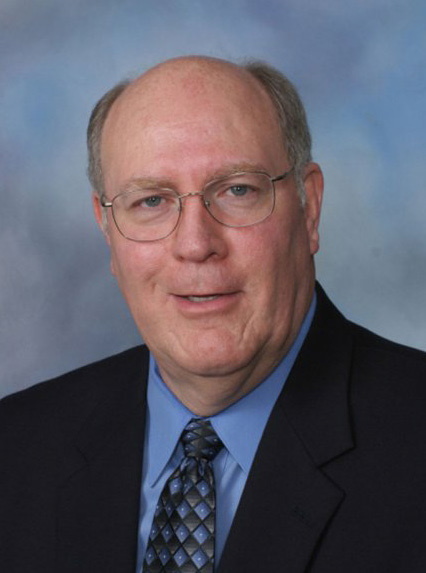Why Plant Churches in America?

My first experience with a new church came when I was a 16-year-old high school student. A young lady—now my wife—had invited me to a youth activity at a nearby church. I later discovered that the church had been planted only a few years earlier and had just moved into their first building.
The excitement and energy that enveloped the growing congregation was infectious. The preacher proclaimed God’s Word with power and clarity; the people were friendly; and the atmosphere was filled with hopeful expectation! There was something about that new church that God used to light a fire in my soul. Not long after accepting the invitation to attend that youth activity, God called me to preach and placed within my heart a burden to plant churches. I agree with the challenge presented in the helpful book, Church Still Works, when the authors write, “It is time to radically ramp up our church planting efforts.”1 What are the compelling reasons that should stir us to invest the men, money, and mentoring into such efforts?
Because church planting is the Great Commission in action
The Great Commission, as recorded in Matthew 28:19-20, provides the simple formula for successful church planting. The imperative in the passage is “to make disciples.” The three participles illustrate how that is to be accomplished: by going (evangelization), by baptizing (identification), and by teaching (edification). That is, in Biblical terminology, church planting in plain language. Successful new churches are built through personal evangelization, not the rotation of the saints!
Because during the years 2000-2005, on average, 3,707 churches closed each year in the United States.2
While it is true that Bible-believing, gospel-preaching churches comprise only a portion of the churches that are closing each year, our “replacement rate” is not equal to our rate of closure. Statistics illustrate that we are rapidly losing ground!
As churches close across America, I believe God is extending to us a divine opportunity to “rescue” these closed church facilities for use in church planting. A most recent example illustrates my point.
Last January I travelled to the Buffalo, New York area to meet with a young church planter, Michael Herdzik. Mike had been serving faithfully in a local Baptist church as a Youth Pastor but felt the call to plant a new church in the greater Buffalo area. To make a very long story short, another independent Baptist church had been given—debt free—a church facility (auditorium, classrooms, offices, gymnasium, and parsonage) from a congregation that was one of the 3,707 closed churches in America. Pastor Mark Emke and his good people voted to partner with young Pastor Herdzik in planting New Beginnings Baptist Church. Their first service was held April 10, 2011, with 32 in attendance!
Because the church-to-population ratio has declined in America
While we do not know exactly how many vibrant churches would be required to evangelize America effectively, we do know that the number of churches per every 10,000 Americans has declined during the past century.
In 1900, 28 churches existed for every 10,000 Americans.
In 1950, 17 churches existed for every 10,000 Americans.
In 2004, 11 churches existed for every 10,000 Americans.3
It is important to note that very few of the 11 churches in existence are fundamental, Bible-believing churches. This number (11) counts churches of all denominations and beliefs! It would be generous to assume that 3 or 4 of these 11 churches would be doctrinally sound and evangelistic— the type of church that God could use to reach lost people.
Because America’s population is expanding at a record rate
The population of the United States increased by 27.3 million people between 2000 and 2010. And at the same time, America’s culture has become increasingly non-Christian. Aubrey Malphurs describes it well, “Essentially, what was a churched, supposedly Christian culture has become an unchurched, post-Christian culture. People in our culture are not antichurch; they simply view the church as irrelevant in their lives.”4 Part of the increase in America’s population and changing culture is due to rising ethnic groups and the religious beliefs that are common among them. Reality tells us that we can begin to reach a lost world by planting churches here in the United States.
Dr. Ray Thompson of Baptist International Missions, Inc. is credited with making the statement, “The mission of the church is missions, but the mission of missions is church planting.” How true! Today, the United States is the third most populous nation and one of the largest mission fields.
Because many independent Baptist churches fail to reach maturity
Sadly, far too many of our churches are birthed and then fail to receive adequate care. Much like precious newborn children who die prematurely, new churches often suffer the same devastating end. Dr. John Bailes, USA Director for BIMI, reports, “Nearly 50% of new independent Baptist churches planted in America fail to reach maturity.”5 Having been involved with church planting for over 36 years, I concur with Bailes’ conclusion.
One of the challenges associated with church plants that fail is the impact their demise has on future church planting efforts. If an established church invests considerable financial support in a congregation that does not reach maturity, it is difficult for that same church to be excited about supporting the next church planter who makes an appeal for prayer and funds.
Because Bible-believing churches in the United States continue to form the greatest source of international missions endeavors
Throughout America’s proud history, local churches have risen to the challenge of taking the gospel to a lost world. Only eternity will reveal the impact Americans have made through prayer, missionaries, and financial support. If, however, this effort is to continue, more churches must be planted and nurtured here at home. Seldom does a week pass when I do not hear of a missionary couple seeking to raise their support to head off to the field of the Lord’s choosing. For most of these couples, deputation takes far too long and costs far too much! I am convinced of one thing: it is not that we have too many missionaries; it is that we do not have enough churches.
Because God commanded it, Jesus started it, and the disciples practiced it
Any serious student of Scripture knows that God’s program for evangelizing the world is the local church. As God’s people—and particularly church leaders—we must increase our vision and double our efforts to plant new independent Baptist churches here in America. As responsible, spiritual believers, we cannot neglect the voice of the Lord as revealed in His Word. We are on the winning team, but we must become engaged in the battle!
October is National Church Planting Month. I invite you to join me in raising awareness and in raising needed funds to help Church Planting America plant new Baptist churches in needy communities. For more information, please contact go to churchplantingamerica.org.
 Charles Shoemaker
Charles Shoemaker
President of Church Planting America
Charles Shoemaker was born and reared in the Chicago area, where he was converted to Christ at the early age of eight. God used the bus and AWANA ministries as a means to reach Brother Shoemaker with the gospel.
At the age of sixteen, Bro. Shoemaker was called to preach. After completing high school, he attended and graduated from the Institute of Biblical Studies of Liberty University, earning a diploma in Bible. He also has earned a Bachelor’s degree (B.R.E.) in Pastoral Theology, a Master’s degree (M.A.) in Biblical Studies, and a Doctor of Education degree (Ed.D.) from Nova Southeastern University. He has received three honorary doctorates, including the D.D. degree from Midwestern Baptist College, the L.H.D. degree from Liberty University, and the Litt.D. from Temple Baptist College.
Dr. Shoemaker has been in full-time ministry since 1975 having served as a church planter and senior pastor. In July of 1995, he joined the staff of Trinity Ministries, serving as Administrative Pastor of Trinity Baptist Church and President/CEO of Trinity Baptist College. He served at Trinity for 15 years. Dr. Shoemaker travels extensively speaking in churches and pastors’ conferences, and his travels have taken him to all fifty states and several foreign countries. He has preached and taught more than 5,000 times in over 400 churches across the country.
Dr. Shoemaker currently serves as a church planting missionary and President of Church Planting America- -a missions agency promoting church planting in the United States and throughout the world. God has used his conferences and writings to minister to pastors all across the country, and his articles have appeared in numerous publications.
He and his wife, Sharon, have been married for 41 years and reside in Jacksonville, Florida. They have two daughters, Amy and Emily; two sons-in-law, Dennis and Michael (all in full-time ministry); two grandsons, Charles and Daniel, and two granddaughters, Michaela and Sophia. In addition to spending time with his family, Dr. Shoemaker enjoys reading, writing, and politics.
1 Paul Chappell and Clayton Reed, Church Still Works, (Lancaster, CA: Striving Together, 2009), p. 197.
2 David T. Olson, The American Church in Crisis, (Grand Rapids, MI: Zondervan, 2008), p. 120.
3 Ed Stetzer, Planting Missional Churches, (Nashville, TN: Broadman & Holman, 2006), p. 9.
4 Aubrey Malphurs, Planting Growing Churches in the 21st Century, (Grand Rapids, MI: Baker Books, 2004), p. 27.
5 John Bailes, “The Need to Reseed America”, BIMI World, Volume 43, Number 2: 16.






